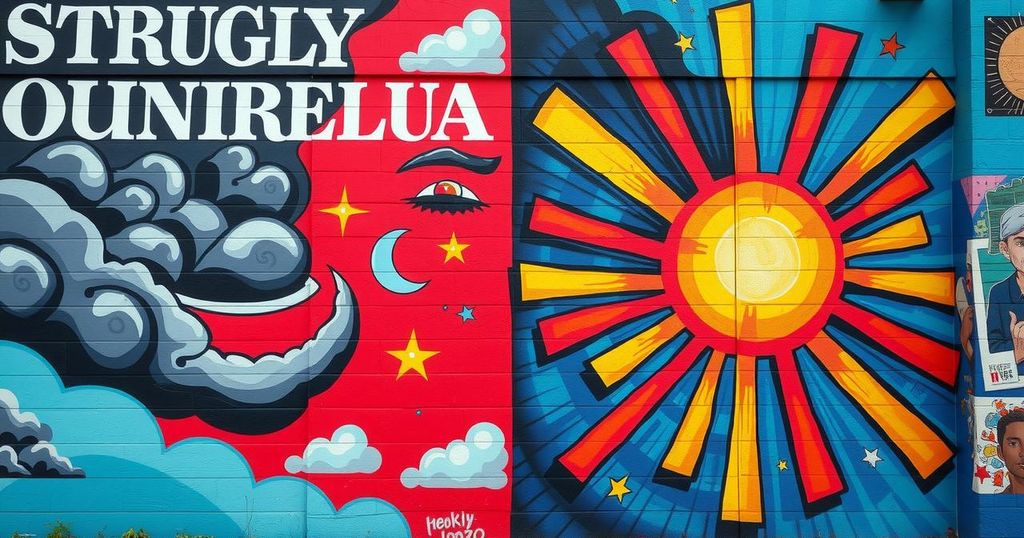Milei’s Argentina: A Nation Divided by Economic Reforms
Javier Milei’s presidency has introduced radical economic reforms in Argentina that generate divided opinions among citizens. While some anticipate growth, others fear increased poverty and social disarray. With an economy struggling under the shadow of high poverty rates, the consequences of his policies are yet to be fully realized.
In recent months, Argentina has seen a significant shift under President Javier Milei’s leadership. His administration has been characterized by drastic economic reforms aimed at stabilizing a faltering economy. However, these measures have sparked a mix of hope and concern among the populace, leaving many questioning whether the sweeping changes will indeed benefit everyone.
Milei, a self-proclaimed anarcho-capitalist, has moved swiftly to implement policies that challenge conventional economic wisdom. Cuts to government spending and deregulation are among his priorities, reflecting his belief in minimal government intervention. Yet, critics argue that such drastic approaches may disproportionately affect the most vulnerable citizens. While some in the business sectors celebrate potential growth, everyday workers fear job losses and reduced social services.
Poverty remains a significant issue in Argentina, with around 40% of the population reportedly living under the poverty line. Under Milei’s new policies, many wonder whether these numbers will worsen or improve. As his government emphasizes austerity, concerns are mounting about how this will affect essential services, such as education and healthcare, which serve the country’s neediest.
Public opinion is divided. Some citizens see Milei as a necessary disruptor, willing to shake up an ineffective political landscape that has burdened the economy for decades. Others, however, express grave doubts. They fear that embracing ultra-liberal policies could deepen existing inequities and exacerbate social tensions.
Furthermore, dissenting voices within his coalition have emerged, showing cracks in support for his radical approach. Some political allies are concerned about the social ramifications of cutting essential programs. The administration’s early attempts to address these internal divides have been less than successful, making the road ahead murky.
Milei has also been vocal on international relations, indicating a shift in Argentina’s foreign policy. His criticism of previous administrations and outright rejection of numerous treaties have drawn mixed reactions globally. While some applaud his independent stance, others worry that Argentina may isolate itself further in a complicated geopolitical landscape.
As Argentina navigates this uncertain chapter, many people are left pondering what the future holds. The dichotomy of progress and peril now shapes daily life as the nation grapples with change. While some rejoice in the potential of new opportunities, many remain skeptical, holding their breath to see how this experiment in governance unfolds in the coming months.
In conclusion, Javier Milei’s administration has signified a turning point for Argentina, yet it has not benefited all citizens equally. Although economic reforms have generated enthusiasm among certain sectors, the looming threat of increased poverty and social unrest hangs over the nation. As policies unfold, it remains to be seen whether Milei’s drastic transformations will yield the promised outcomes or further exacerbate existing challenges.
Original Source: gazette.com




Post Comment